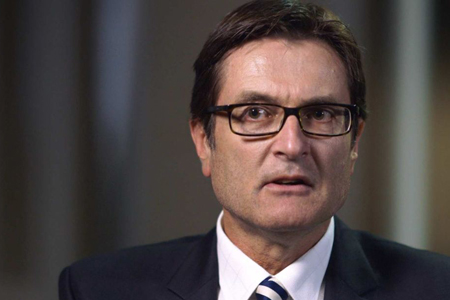… as ad campaign strikes a chord in troubled times
Industry super funds are spending at least $19.5 billion on investment projects across Australia as part of a three-year pipeline that will create more than 200,000 jobs. The planned investments were identified as part of a survey of industry super funds, IFM Investors’ clients and Industry Super Property Trust (ISPT) investors. In these troubled times, the current advertising campaign explaining the industry funds’ role is hitting home.
The projects are a key feature of the campaign, fronted by Greg Combet, the Industry Super Australia (ISA) chair. The advertisements highlight how industry super funds’ investments will help get the economy growing again. The projects include new commercial construction, redevelopments, public infrastructure upgrades and energy efficient assets. Feedback from the campaign illustrates a high level of consumer support for the industry funds’ uplift for the economy. In a series of polls throughout April and May, ISA tested public attitudes about how super funds should invest. The polls, by UMR Market Research, found:
- 73 per cent agree that, generally speaking, “I want my super fund to be a long-term investor looking for sustainable returns for its members over the long-term”
- 61per cent say they want their super invested in businesses and projects that create and support Australian jobs (30 per cent were unsure or said they didn’t know)
- 54 per cent say that industry super funds have a key role in helping the economy recover because of the things they invest in (35 per cent were unsure or didn’t know), and
- 56 per cent agree the Australian economy benefits if super funds invest in major public infrastructure and property projects, such as roads, airports or shopping centres (35 per cent were unsure or didn’t know).
While a majority agreed that super should be invested to help the Australian economy regrow, there was a sizeable minority who were potentially unaware of how super could help create economic growth by being invested in things that created jobs and keep businesses strong, the research indicated. There was little understanding of how super would help Australia bounce back and play a major role in the re-build of the economy.
“Our campaign sets out to boost that level of understanding in how super funds’ investment in infrastructure, property and other parts of the Australian economy not only deliver good returns to members but also create jobs and help the local economy,” the UMR agency reported back to ISA.
The campaign will run for at least the next two months. ISA plans to reach every working-age Australian. The campaign is running across mass media markets including broadcast TV, digital and catch-up TV, online and throughout social media.
“We’re already big investors, but we’ve got much more planned that will not only grow our members’ balances but generate jobs and economic activity across Australia,” Combet said when previewing the campaign. “Government will need to mobilise private investment to create jobs and stimulate the economy. The super system will be vital for this task and industry funds will play a significant role… Crucial to the industry funds contribution to economic recovery will be policy stability in the super system.”
Industry super fund members collectively own more than $104 billion in Australian infrastructure, property, and other real assets. These investments create jobs and drive productivity and growth. The profits generated by these investments have been critical to the good performance of the funds with members reaping the benefits through strong returns. Analysis shows that $100 invested in unlisted assets 15 years ago is now worth $510, in comparison $100 invested in international shares would be worth $351 now.
The survey has also revealed the funds are venturing into new investment opportunities across many sectors – ploughing billions into aged care, affordable housing, direct lending to business and agriculture. Since the Covid-19 downturn Industry super funds have poured hundreds of millions into the balance sheets of good Australian business, this helps them to rebuild and to expand operations. And there could be billions more to come, at the end of the global financial crisis super funds provided a significant portion of the $120 billion in capital raised by local businesses.
Industry super funds hold a major stake in Australia’s economic life.
“They invest in Australian listed companies – holding 10 per cent of the ASX – are active in debt markets, have significant infrastructure and property holdings and invest in the wider Australian financial system. The super system needs a strong Australian economy to deliver for members, and the economy needs a strong super system to support its recovery,” Combet said.
The campaign (which can be seen here:) is running across all mass media markets. The Shannon Company is the creative agency and ISA’s director of marketing is Alana Burnside, who has a background in commercial advertising agency work.
– G.B.










